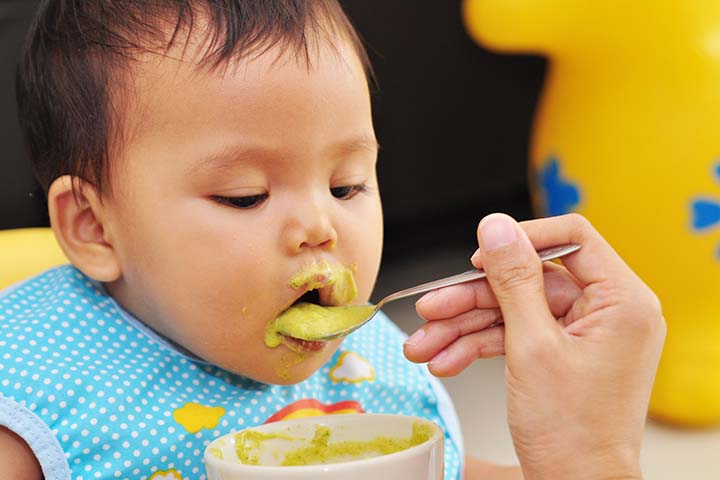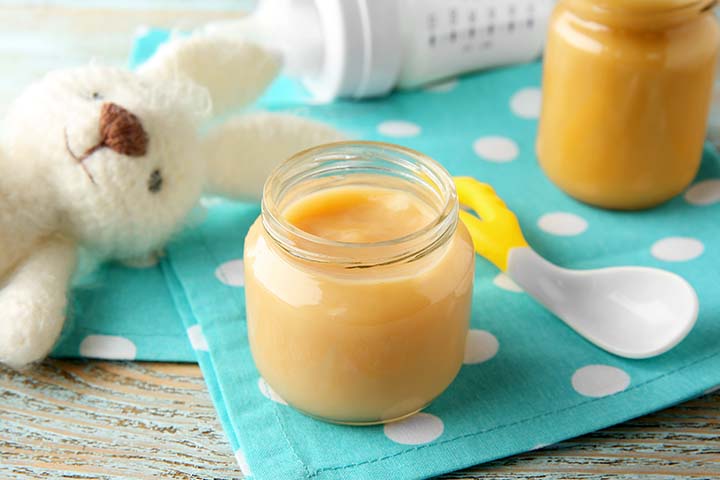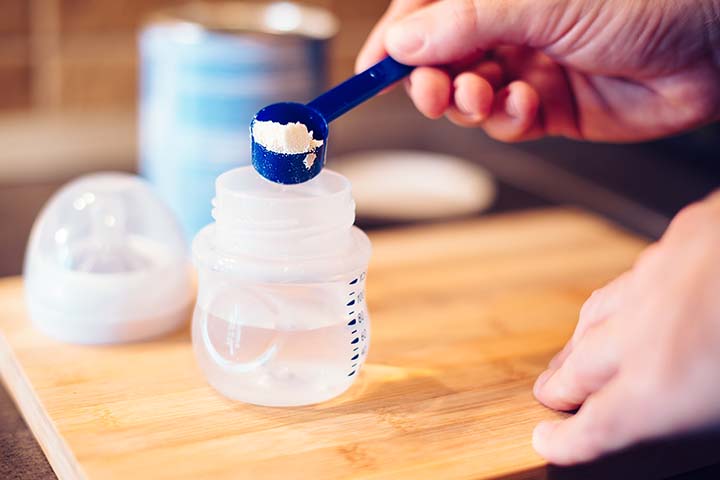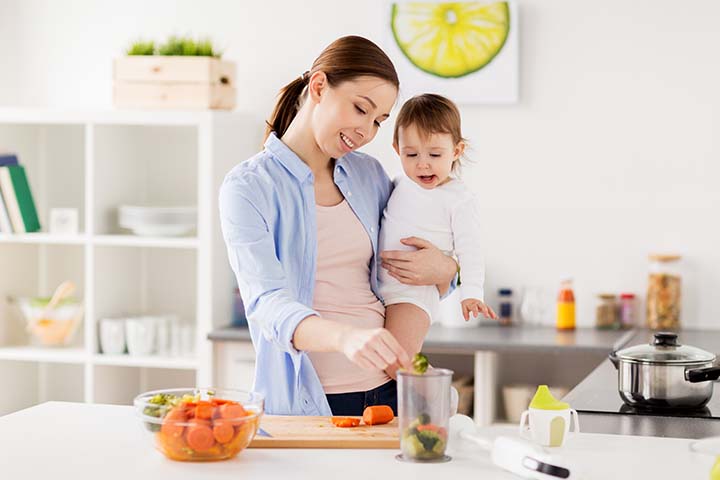
Image: Shutterstock
As a new parent, we know that you have an infinite trail of worries haunting you. From whether your child is still hungry to if they are breathing while sleeping, the list is endless. We wouldn’t have added another worry to the list if it wasn’t alarming, but sadly, it is. Of course, you would never compromise on your child’s nutrition intake, especially in the growing years when their brains are developing rapidly. But research and findings on toxins present in baby food ingredients are a concern worth noting (1). Many processed baby foods from popular brands contain life-threatening heavy metals and lead (2). Some are believed to have a toxin content equivalent to store-bought adult food. Now, as you can guess, they can adversely affect your growing child, and this is something you would want to stop at all costs. Here in this article are some ways to cook safe and healthy baby food to keep your child healthy and happy. Read on!
1. Don’t Go For Exotic Fruits And Vegetables
Image: Shutterstock
Some of the essential nutrients for a growing brain are everyday products you buy at the grocery store. You may give your growing child the necessary nutrients by feeding them a diet rich in vegetables and fruits, like kelp, zucchini, algal oil, and sunflower seed oil. Make sure you research on each of these and also check if your child is allergic to any of them by trying them out in small quantities.
2. Choose The One That Has a ‘Clean Label Project Certified’ Seal
Image: Shutterstock
Baby food throughout North America is shockingly under-regulated, even relative to traditional dietary standards. This implies that the food we give our infants may be contaminated with toxins like heavy metals. For example, lead, which stunts a baby’s mental growth in general, has been discovered in various infant foods (3). Thus, it is crucial to opt for a brand of baby food that does its heavy metals testing rather than relying on the results of a lone lab.
3. Choose The Baby Food Ingredients Wisely
Image: Shutterstock
It’s not the cooking process that contributes most of the heavy metals to our food; instead, it’s the soil that the crops grow on. Peel veggies that are grown in the ground before cooking, and serve a variety of them. Instead of buying whole carrots, go for mini carrots. Even if something is certified as organic, it doesn’t ensure it’s devoid of metals like lead and mercury. The presence of heavier metals in organic baby food compared to non-organic baby food is not statistically very different (4). Variety is essential since it is less important how the product is grown than where.
4. Don’t Trust Packaging Claims Blindly
To maximize your child’s nutritional intake, you should cook their baby food. For example, the label may claim the presence of spinach in the product, but if it just offers 2% of a kid’s daily intake of iron, they are apparently getting the same of 1 calorie of spinach. Although it is easy to be misled by packaging, the information on the nutrition label is required by law to be accurate and presented without bias. Check out the components in the order they appear, with the more prominent ones mentioned first.
5. Choose Vegetables To Fruits
Image: Shutterstock
Look for vegetables as the primary ingredient, as opposed to fruits. Throughout the first 18 weeks of life, a child actively strives to develop their taste buds and learn what constitutes a “normal” meal (5). The ability to appreciate a variety of nutrient-dense flavors is a valuable asset that should be fostered in children from an early age.
Once you begin to wean your child into solids and semisolids, you need to be even more careful about what you feed your child. Most parents follow their instincts and beliefs on what they think is healthy for their children. But it is essential to thoroughly check the ingredients and check for hidden elements. For example, your child does not need sugar-free cereals, as the component used as an alternative to sugar could be more harmful to the baby. Stick to unprocessed or least processed foods for your child’s growing years. Even if they want treats, try to keep them homemade. You can always bake some banana chips or bake homemade muffins for your children. The more you instill good food habits in your children at a tender age, the more likely they will carry the food habits with them for the rest of their lives. So which is your most trusted baby food? Let us know in the comments section!

















